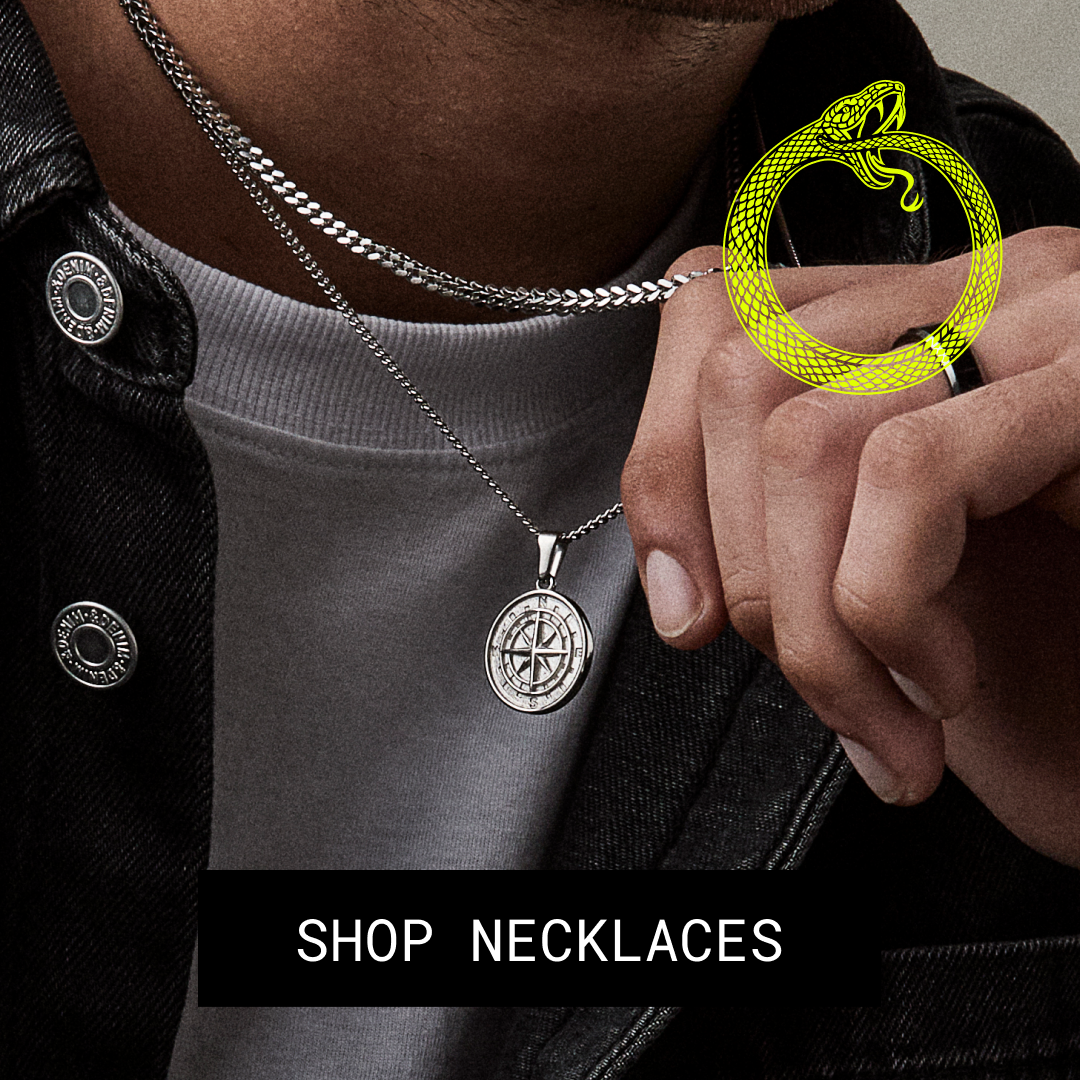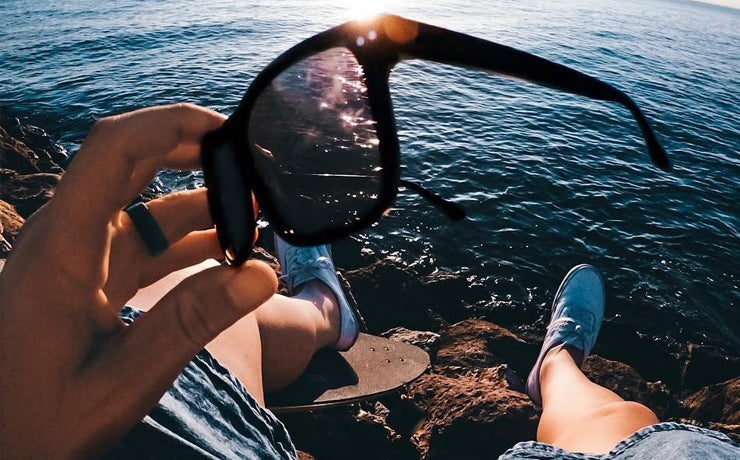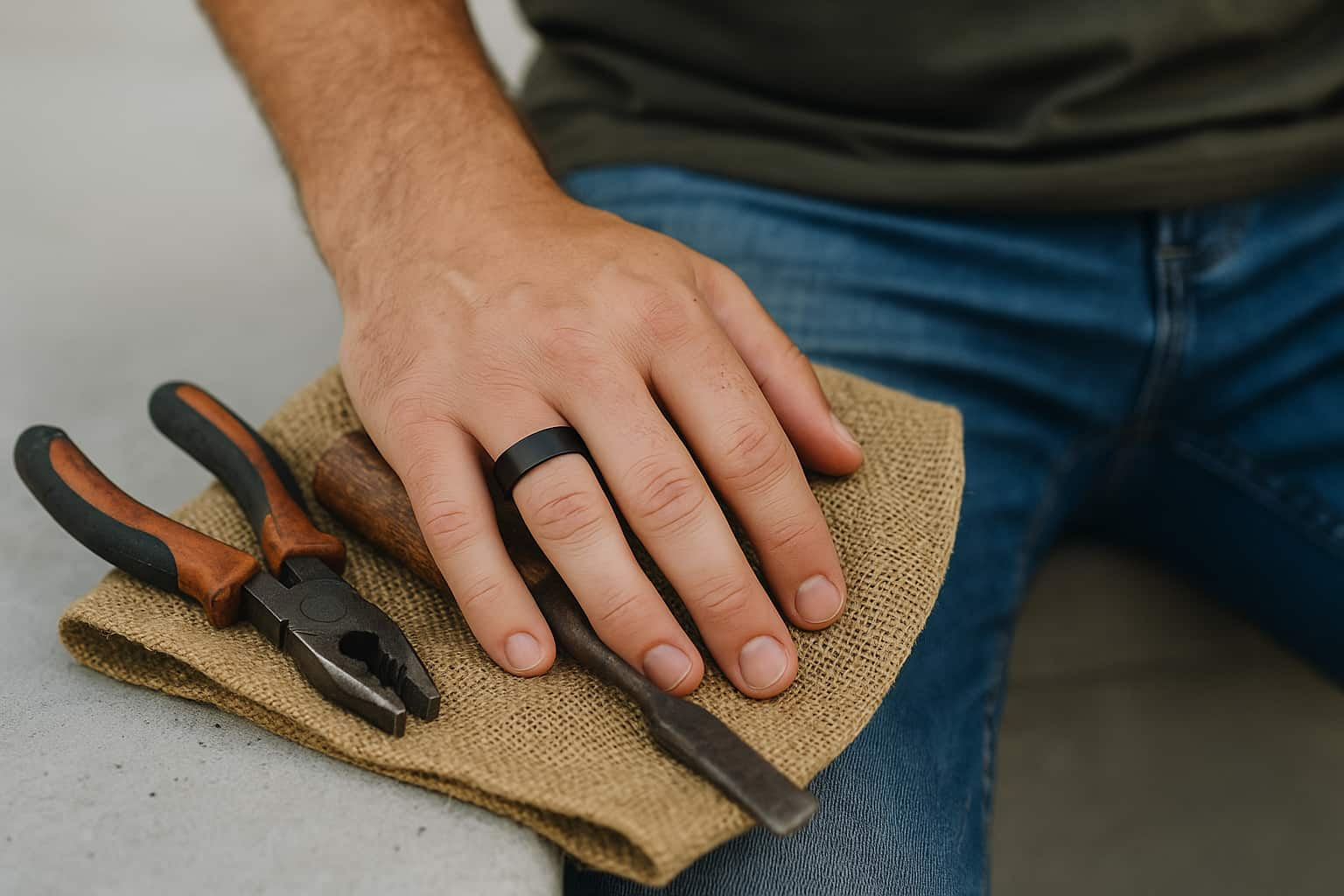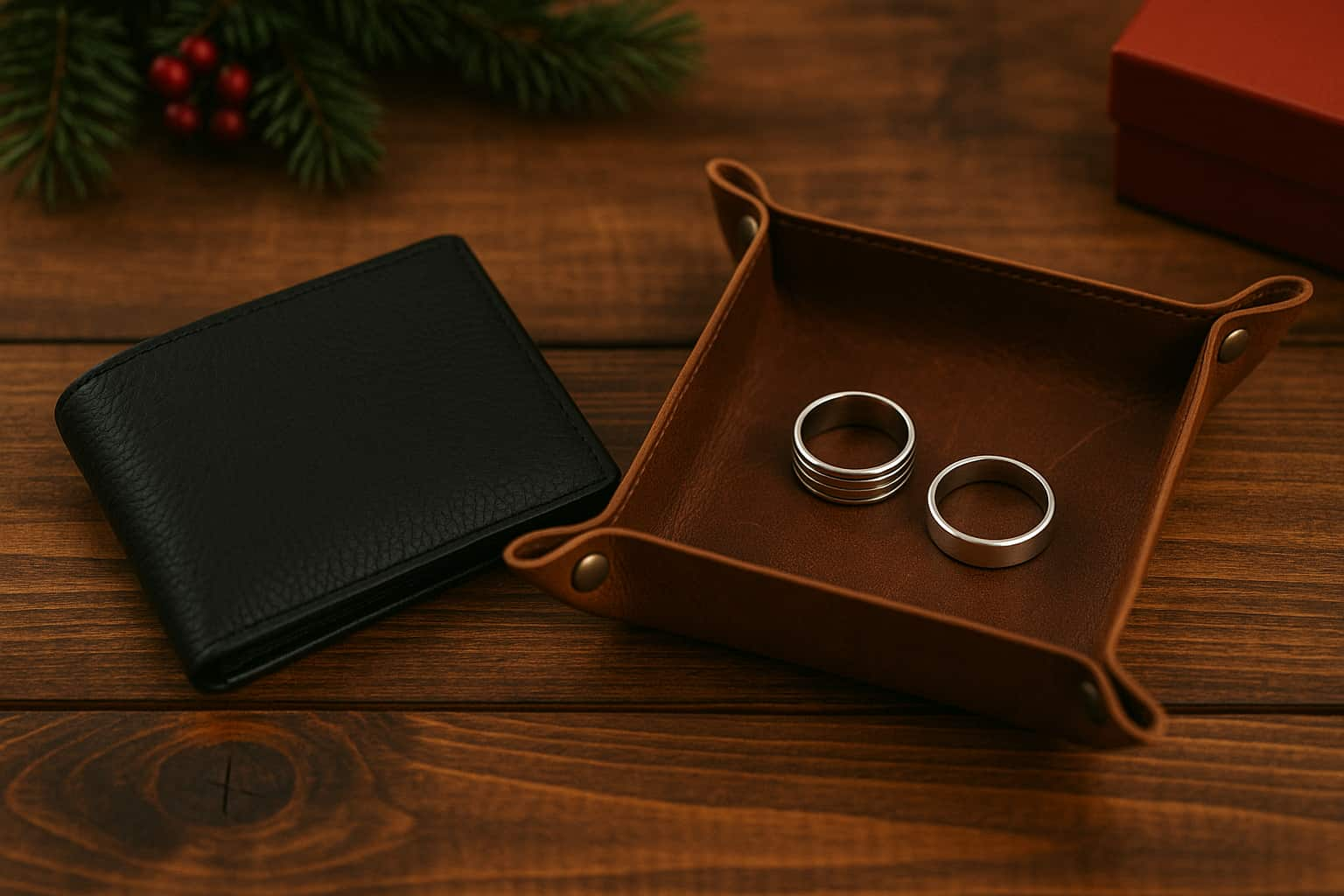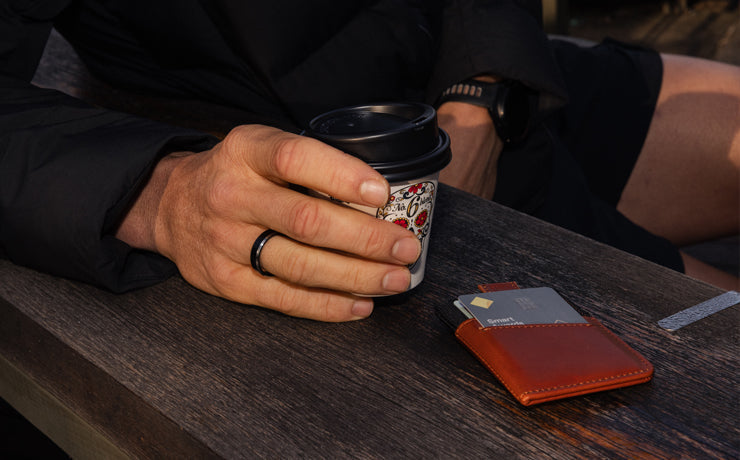When we think of rings, we think of these beautiful and elegant pieces of handcrafted artwork. We think of the meaning they hold and the love they represent. But we must also think about the fact that these rings will sit on our fingers every day for the rest of our lives; our rings are exposed to and aged by all the same elements that age us too. This is why buying waterproof jewellery is so crucial, especially for engagement and wedding bands.
Exposure to the elements is an unavoidable part of wearing a ring every day. Water, heat, and other environmental factors are to blame for most of the tarnishing and damage that happens to rings. The good news is that this has led to a greater focus on buying waterproof rings that can stand the rigours of daily life. In this buyer’s guide, you’ll learn everything you need to know about waterproof and weather-resistant ring materials.
What Makes a Ring Waterproof or Weather-Resistant?
When we talk about waterproof or weather-resistant rings, we’re referring to rings made from materials that can endure frequent exposure to water, humidity, and changing temperatures without losing their shine, tarnishing, or breaking down over time. As we’ve discussed in a previous blog, different ring materials have different properties that affect their resistance to the elements. Here are the main ones:
Material Composition
The type of metal or material used in waterproof jewellery plays the biggest role in weather resistance. Hard, pure metals like titanium, stainless steel, and tungsten are well known to resist corrosion and rust even with prolonged exposure to water or other elements.
Surface Finish and Coating
Rings made with particular finishes or protective coatings tend to hold up better against tarnishing than those without. Some common ones include Rhodium plating on white gold rings and PVD (Physical Vapour Deposition) coatings which help to improve scratch resistance.
Other Factors
Other factors, such as the ring's design, can affect water resistance too. Seamless design rings without joints, seams, or intricate designs are usually more resistant to water damage.
Why Does Waterproofing Matter?
A waterproof or weather-resistant ring isn’t just about convenience—it’s about ensuring your jewellery lasts a lifetime. Rings are exposed to water daily, whether it’s from washing your hands, swimming, or just existing in humid environments.
At the end of the day, it’s really about peace of mind. If you know you’re wearing a reliably weather-resistant ring, you can stress less about day-to-day wear.
Best Waterproof and Weather-Resistant Ring Materials
So, if you’re wondering what the most weather-resistant and waterproof ring material actually is, here are a few for you to choose from:
Titanium
When it comes to durability and weather-resistance, titanium rings are in a league of their own. This clever metal creates a natural oxide layer around it when exposed to air. This oxide layer acts as a natural shield and prevents the metal underneath from reacting with water, oxygen or other corrosive substances.
You can even wear titanium in the ocean and in swimming pools due to its resistance to saltwater and pool chemicals. This particular tidbit cannot be said for any of the other metals in this list.
Tungsten
Tungsten also makes for an immensely waterproof and weather-resistant ring material. It is highly resistant to rust and corrosion, and with a Mohs hardness rating of between 8 and 9, it’s one of the hardest metals used in any jewellery.
Similar to titanium, tungsten is also known for forming a protective surface layer when exposed to air, which prevents oxidation and rusting. And you don’t have to worry about heat, as tungsten melts at 3,410 degrees celcius!
Stainless Steel
Stainless steel is another great waterproof ring material. In order for steel to be considered ‘stainless’, it needs to include at least 10.5% chromium. Chromium is great because it, like titanium and tungsten, forms that all-important oxide layer around the surface of the ring. Some types of stainless steel (such as 316L) are resistant even to saltwater.
Silicone
If you’re looking for an alternative to metal rings but still want the same waterproof and weather resistant qualities, silicone rings are a great alternative. These subtle but immensely versatile rings are a fan favourite among those working with electricity or heavy machinery as they don’t conduct electricity and don’t pose an injury risk in case of swollen fingers. Unlike metal, silicone is completely impervious to water, nor does it rust, tarnish, or degrade when exposed to moisture.
Gold
Gold is an interesting one. Gold itself doesn’t rust or corrode when exposed to water because it’s a noble metal—meaning it’s highly resistant to chemical reactions with oxygen or moisture. But this all depends on the purity of the gold.
- 24-karat gold (pure gold) is soft and very scratchable, but it is also very resistant to oxygen and moisture.
- 14-karat and 18-karat gold, which are mixed with harder metals like copper, silver, or palladium, offer better durability and scratch resistance at the expense of their resistance to water and other elements.
If you’re planning to wear gold on the daily, we would still suggest that you remove your rings if you’re regularly around water.
Caveats to Waterproof and Weather-Resistant Rings
Even if a ring is considered waterproof or weather-resistant, that doesn’t mean it’s completely invincible. Here are a few important caveats to keep in mind:
Chlorine and Pool Chemicals
Waterproof does not mean chlorine-proof. So while you might be fine to take a dip in a lake or have a shower with your waterproof ring on, you should still remove it before jumping in chlorinated water. Gold, in particular, can become brittle or lose its shine if exposed to pool chemicals regularly.
Saltwater Exposure
Saltwater is another element that can affect the longevity of your ring. While titanium and stainless steel handle saltwater well, gold and tungsten may suffer. Salt can corrode or tarnish certain materials, especially if they’re not properly rinsed after contact.
Frequently Asked Questions
Are Stainless Steel Rings Waterproof?
Yes, stainless steel rings are highly resistant to water and corrosion, making them a great option for everyday wear. However, it’s still best to avoid prolonged exposure to harsh chemicals like chlorine.
Are Titanium Rings Waterproof?
Yes, titanium rings are waterproof and naturally resistant to rust and corrosion. They’re perfect for wearing in humid or wet environments.
Are Tungsten Rings Waterproof?
Tungsten rings are water-resistant and won’t rust, but prolonged exposure to harsh chemicals or saltwater can dull their finish over time.
How Long Do Waterproof Rings Last?
With proper care, waterproof rings made from durable materials like tungsten, titanium, or silicone can last a lifetime.

